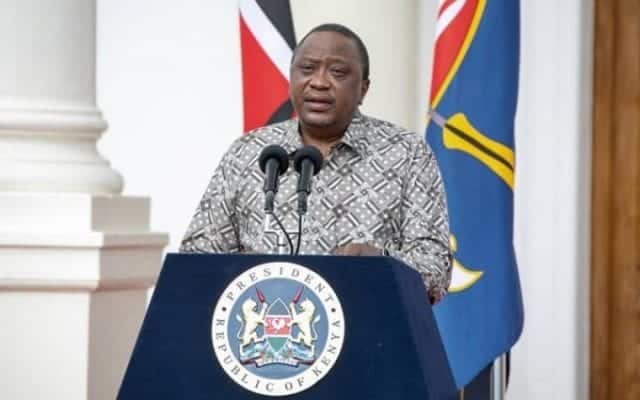
Debt repayments will for the first time overtake the national government’s recurrent spending on items like civil servant salaries under President Uhuru Kenyatta’s successor in the year starting July, underlining the burden of mounting State borrowing.
Treasury chiefs project in the supplementary budget under parliamentary review that Kenya will spend Sh1.36 trillion annually in the year starting July for debt repayment, up from Sh1.15 trillion in the current fiscal period.
The debt costs will for the first time in Kenya’s history surpass the recurrent expenditure, projected at Sh1.34 trillion in the coming year from the current Sh1.27 trillion.
Kenya has ramped up borrowing under President Kenyatta’s administration to build infrastructure, leading to a squeeze on its finances as the loans fall due amid criticism over the resulting debt burden.
The debt binge is underlined by Eurobond offerings, a package of Chinese loans and syndicated commercial loans in recent years.
This presents a headache to Kenya’s next president who will have a narrower fiscal space for balancing the budget while implementing a number of promises made ahead of the August 9 elections.
At Sh1.34 trillion, debt repayments will consume about 65 percent of taxes, impeding spending on development projects in a country mired in poverty and plagued by rising youth unemployment.
The public debt expenses will form the single-largest expenditure for the national government, nearly double the Sh730.59 billion estimates for development projects, leaving little cash for building roads, affordable housing and revamping of the ailing health sector—which are key for jobs creation.
Deputy President William Ruto will run against veteran opposition leader Raila Odinga, who has Mr Kenyatta’s support, in the August election.
Both have raised concerns over the mounting debt.
“Debt must be the last resort. We must not be slaves of debt from any place or any country,” said Dr Ruto while receiving his new party’s nomination to stand for Kenya’s presidency without elaborating how he intends to tackle the mounting debt.
Mr Odinga is mulling over renegotiating short-term commercial loans, echoing the present government’s plan to refinance or substitute commercial loans with cheaper options from friendly nations or development financiers like the World Bank.
“We have two categories of loans but the short-term commercial debts with shorter times of repayment and higher interest rates are the ones that are punitive and we intend to find a way of renegotiating the repayment rates,” Mr Odinga told a forum at the Chatham House in the UK recently.
President Kenyatta’s government has increased public debt by Sh7 trillion from Sh1.89 trillion since 2013. The loans – which include billions of dollars from China –are pushing against the nation’s debt ceiling.
The government has defended the increased borrowing, saying the country must invest in its infrastructure, including roads and railways.
Public anger at the government’s higher appetite for debt has grown.
Analysts at Parliamentary Budget Office (PBO) – a unit which advises lawmakers on financial and budgetary matters – says public borrowing in the coming years will be driven more by the need to repay maturing debts than fund infrastructure development.
The government largely borrows funds locally and abroad to bridge the deficit in annual budgets.
“Whilst initially, the fiscal deficit was prompted by large infrastructure-related expenditures, the increase in debt servicing expenditures alongside critical expenditures (such as implementation of the economic recovery strategy, national election-related expenditures), is expected to play a greater role in the stickiness of the fiscal deficit over the medium term, and determine the pace of debt stock growth,” PBO wrote in analysis on debt management strategy.
The Treasury sees repayments to foreign creditors rising 34.11 percent to Sh440.06 billion, while domestic debt costs are forecast to increase 11.65 percent to Sh919.06 billion in the year starting July compared to the estimates for the current year.
Some of the large external repayments in the next financial year include Sh103.75 billion to China’s Exim Bank which, among other projects funded the standard gauge railway and Sh61.88 billion to a syndicated loan arranged by Comesa-owned Trade and Development Bank.
Others are interest payouts for the Eurobonds (Sh53.57 billion), World Bank Group’s International Development Association (Sh49.19 billion), Italy (Sh19.73 billion), France (Sh17.98 billion) and Japan (Sh12.42 billion).
The growing debt burden reflects fast-maturing commercial and semi-concessional loans which the Jubilee administration contracted in early years in office to build a modern railway, new road highways, bridges and electricity plants.
“Since the current administration came to power (April 2013), revenues have really grown from about Sh800 billion to Sh1.7 trillion. Why are we still having this problem of high deficit with growing revenue?” John Nyangi, head of research at Institute of Public Finance-Kenya (IPFK), a think-tank, posed.
“The problem is with the expenditure, which is growing faster than revenue without a corresponding contribution to economic growth.”
Source:https://www.businessdailyafrica.com/
Kenya Debt Payments Surpass State Running Expenses







